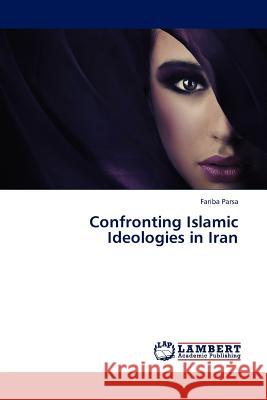Confronting Islamic Ideologies in Iran » książka
Confronting Islamic Ideologies in Iran
ISBN-13: 9783845408880 / Angielski / Miękka / 2011 / 260 str.
This dissertation argues that there is an ideological antagonism between the Islamic reformists and the Islamic fundamentalists, pertaining to the establishment of the Islamic Republic of Iran. The claim of this work is that the same elements of liberalism, the ideas of individualism and liberal rights and the same elements of communitarianism, the ideas of community and the common good are quite generally found within Islamic political discourses. The reformists rejected the fundamentalists' religious dogmatism, intolerance and monopolistic policy, and they introduced liberal ideas of self-autonomy, tolerance and pluralism. The fundamentalists' arguments built on rejection of what they called "Western freedom" and "American democracy." The "Islamic democracy" and "Islamic freedom" of the fundamentalists were constructed by negation of the "West," instead stating that God, the divine sources, and justice are the main principles. One of the most important results of this study is the demonstration of the battle between two hegemonic projects: "liberal Islam" of the reformists and the "communitarian Islam" by the fundamentalists.
This dissertation argues that there is an ideological antagonism between the Islamic reformists and the Islamic fundamentalists, pertaining to the establishment of the Islamic Republic of Iran. The claim of this work is that the same elements of liberalism, the ideas of individualism and liberal rights and the same elements of communitarianism, the ideas of community and the common good are quite generally found within Islamic political discourses. The reformists rejected the fundamentalists religious dogmatism, intolerance and monopolistic policy, and they introduced liberal ideas of self-autonomy, tolerance and pluralism. The fundamentalists arguments built on rejection of what they called "Western freedom" and "American democracy". The "Islamic democracy" and "Islamic freedom" of the fundamentalists were constructed by negation of the "West", instead stating that God, the divine sources, and justice are the main principles. One of the most important results of this study is the demonstration of the battle between two hegemonic projects: "liberal Islam" of the reformists and the "communitarian Islam" by the fundamentalists.











